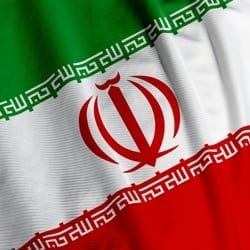Well, we have a deal. After nearly two years of talks — including multiple extensions and roller-coaster last-minute negotiations in Vienna — the United States and other major powers have reached an agreement with Iran on the latter’s nuclear program. It is hard to exaggerate the importance of the deal. The description “historic” has grown cheap with overuse when it comes to international affairs; but the Iranian agreement surely qualifies.
Both the Obama administration and the government of Iranian President Hassan Rouhani have invested huge political capital in striking an agreement. The deal marks a significant victory for each. It also represents a personal triumph for U.S. Secretary of State John Kerry and Iranian Foreign Minister Mohammad Javad Zarif, who were deeply involved in the protracted and, at times, contentious negotiations.
On a substantive level, the agreement — if successfully implemented (and more of this later) — will substantially diminish a major source of contention between Iran and the international community. In the short term, it will substantially extend the period required for Iran to develop nuclear weapons and, in the longer term, lower the risk of nuclear proliferation in the Middle East. And it might — repeat might — open up the possibility of more normal relations between the United States and Iran.
The text of the agreement — much of it highly technical -— can be found here. This New York Times piece provides a useful discussion of the key issues covered by the deal. And here is President Obama’s statement on the agreement.
The deal will generate a huge amount of analysis and comment in coming days and weeks. But, for all its complexities, the agreement embodies a very simple quid pro quo: in return for limitations on its nuclear program, Iran will receive relief from international sanctions that have crippled its economy.
Is the deal perfect from the U.S. perspective? No. Washington did not get everything it wanted. This should go without saying. Compromise, after all, is the nature of any negotiation. If it weren’t, there would be no pointing in talking at all: a simple ultimatum and simple surrender would do. A perfect agreement — a deal, for instance, that included an Iranian commitment to cease all enrichment of uranium — is one to which no Iranian government would have agreed.
We will no doubt hear an avalanche of criticism of the agreement in upcoming days and weeks. Some will reflect good faith concerns about particular provisions of the deal. Much, however, will simply represent the latest arguments of those — here in the United States and abroad — who oppose the idea of any plausible deal with Iran.
As we assess the deal, it is not enough to compare the current agreement with a theoretical arrangement under which Tehran concedes to all U.S. demands. To do so is to conduct foreign policy by wishful thinking. This is rarely a good idea: see our invasion of Iraq in 2003. On the contrary, it is incumbent upon those opposing the deal to provide in detail an alternative policy that better achieves our interest in constraining Iran’s nuclear program.
On balance, the deal is a good one. But make no mistake: it might yet fail. Everything hinges on the extent to which Iran adhere to its provisions. The success of the agreement may well take years to assess fully. But, in a Middle East beset by unending violence and intractable conflict, the deal struck in Vienna is a breath of fresh air.
Joe Barnes is the Baker Institute’s Bonner Means Baker Fellow. From 1979 to 1993, he was a career diplomat with the U.S. Department of State, serving in Europe, Africa, the Middle East and South Asia.
